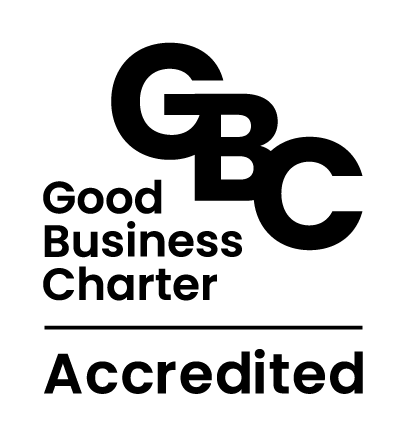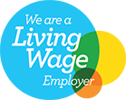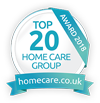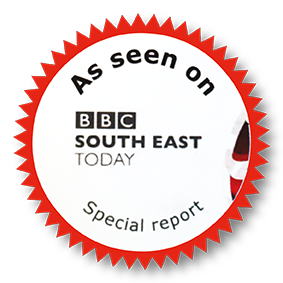SERVICES
![]()
Stroke Care Hove and Brighton
Looking for a company that can provide Stroke Care Hove and Brighton? Seniors Helping Seniors is a companion care company in Brighton and Hove. The services we provide in people’s homes are non-medical.
Carers are employed because of their experience caring for loved ones or professional care experience. Our carers are loving, caring, giving and compassionate people with a range of experiences to share. You will be matched with the right carer and the same people visit.
Mike Dooley has thirteen years experience caring for clients who have survived stroke and he is optimistic about life after brain injuries.
We wanted to share some of the key features of our work supporting families and clients after stroke.
We know people want clinical information, so we are happy to share key information from clinicians, rehabilitation teams and the NHS.
Our work starts when clients come home and our skills around prompting our clients and remaining optimistic help people to achieve positive outcomes.
It’s wonderful to see the improvements that can be made in a relatively short period of time with proper support, care and encouragement.
What are the main risk factors for a Stroke?
AGE – Blood arteries naturally become harder with age, which makes them more likely to become blocked.
HIGH BLOOD PRESSURE, DIABETES, HIGH CHOLESTEROL
TIA’s Transient ischaemic attacks are known as mini strokes. Symptoms tend to last for a few minutes or a few hours and disappear completely. TIA’s should not be ignored. TIA’s are a warning sign of a problem with the blood supply to the brain.
What are the main contributing factors in LIFESTYLE?
The risk of strokes can be increased by things we do in everyday life like being overweight.
Drinking too much alcohol. Being sedentary. Eating foods that are high in salt, fat & sugar. Smoking.
What does the initial treatment for Stroke look like?
If you experience a stroke, you will likely be admitted to an emergency department to stabilise your condition and determine the type of stroke that you have suffered. Depending on the stroke’s severity, you may need to spend time in intensive care or acute care. Starting rehabilitation as soon as possible after the stroke is vital in stroke recovery.
You don’t need to be 100% back to health before returning home after a stroke, if you are able to perform most of your activities of daily living (ADL’s) in your own home and/or have support/care to assist you, returning home will be encouraged.
What does the first few weeks after the stroke look like?
Typically, people stay in hospital five to seven days after a stroke. During this time, the stroke care team will evaluate the effects of the stroke, which will determine the rehabilitation plan.
What does the first 1-3 months post stroke look like?
The first three months are the most important for recovery and patients will see the most improvements during this time. The aim of rehabilitation is to restore function as close as possible to pre-stroke levels. Physical, occupational and speech therapies are the key components to stroke rehabilitation.
What does the next few months post stroke look like?
Improvements after six months and beyond are possible, and occur at a much slower pace. Some patients will strive to make a full recovery, others may live with ongoing impairment. The possibility of a full recovery is dependent on a variety of factors, including the severity of the stroke, how quickly the initial assessment/treatment was provided and the type & intensity of the rehabilitation program.
What are the long-term effects of Stroke?
Long term effects will vary from person to person, depending on the damage that was sustained and the region of the brain that has been affected. These may include
Cognitive symptoms – Like memory loss and trouble speaking.
Physical symptoms – Such as weakness, paralysis, and difficulty swallowing.
Emotional symptoms – Such as depression and impulsivity – Fatigue – Tiredness and trouble sleeping
REHABILITATION TIPS for Stroke recovery.
Mike knows straight talking is valued by the client and their families. Seniors Helping Seniors carers have experience in helping families and clients after a stroke.
Recommendations
Helpers – Get help from family, friends, or carers to ensure your exercises are practised regularly
Stay positive – Some stroke survivors say that a positive attitude ultimately aids rehabilitation
Keep moving – Add movement or exercise into everyday activities to build up muscle strength
Set Goals – Achievable targets will help to keep you motivated (One step at a time!)
Record your progress – Make a regular note of your activities, so that you can see the improvements as time goes by.
Will I Enjoy Life after a stroke?
Having a stroke is a huge deal for everyone involved and Mike has experienced people whose lives are devastated by the stroke, and people whose lives are changed but enjoyed.
Mike’s top tips
- Set up immediate support. The hospital will provide after care. Stimulation and support in the first few days and weeks is vital.
- Emotional wellbeing can be improved by regular physical exercise.
- Keep in touch with friends & family, which will avoid the feeling of isolation.
- Don’t bottle things up. Communicate your feelings.
- Become more creative – Activities such as music and art are great ways to get the mind working.
- Challenge yourself to try new things. Be open to new skills coming to you, try everything.
- Meet new people.
- Join a stroke rehabilitation club in your area, so that you can meet new people, who are experiencing similar struggles and issues.
- Friends and family join support groups for advice and ideas
Be FAST to identify a stroke and get help
F – Face. Does one side droop? Is it still possible to smile?
A – Arms. Does one arm drift downward? Can both arms be lifted?
S – Speech. Are words slurred? Are there problems understanding the person?
T – Time. 999 Call emergency services quickly, if you notice one or more of these signs.
Our Services
Companionship
Light Housekeeping
Cooking and Shopping
Assistance with Activities of Daily Living
Pet Care
Light Handyman Services
Gardening
Medication Reminders
Mailing Letters and Bills
Escort to Appointments & Events
Running Errands
Outings and Trips
Learning and Hobbies
Dementia and Alzheimer's Care
Long-Distance Check-Ins
Respite Care
Overnight Stays and 24-Hour Care
Consistency
Get in Touch with our Team
After 20 years in elderly care, we know how you would like to be treated!
Get in Touch with our Team
After 20 years in elderly care, we know how you would like to be treated!





